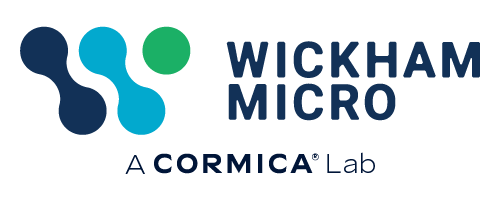Conducting bioburden testing allows the manufacturer to determine if there are any problems within their processes, and will allow them to take the relevant steps to ensure complete sterilisation of the product.
At Wickham Micro, we perform testing in accordance with BS EN ISO 11737-1 for the sterilisation of medical devices, and operate a designated bioburden laboratory to Grade D air quality standards. Our bioburden determination process utilises membrane filtration and, in accordance with regulatory requirements, we ensure that validation demonstrates the recovery efficiency of the method.
Products having a low bioburden are inoculated with spores of Bacillus atrophaeus. For products with a higher bioburden (>100cfu), we would simply utilise the natural bioburden. Recovery efficiency is achieved by sequential washing, using the chosen recovery method.
Once completed, bioburden is then calculated by performing evaluations of ten separate units for each of three batches, representative of normal production practices.
Estimation of bioburden on medical devices in particular can be challenging, due to their construction and composition, which can vary greatly from device to device. However, with our vast experience in bioburden testing of devices which vary from tiny sensors to heart and lung machines, our staff are able to interpret the regulatory guidelines to produce an effective protocol and achieve the desired testing outcome for the client.
We also offer expedited turnaround times for our Bioburden testing services. Expedited testing can significantly increase the speed in which you get your results and help you meet tight deadlines.
Medical Device Testing
Bioburden Testing
Bioburden testing is an important aspect of pre-sterilisation quality control monitoring (and validation or re-validation), monitoring of raw materials, environmental monitoring and control of manufacturing processes. Bioburden is the terminology used to describe the inherent population of microorganisms present in a product. There are numerous pathways where a product can acquire a microbial bioburden, such as via raw materials, manufacturing processes and packaging.





_464x500.jpg#87;other-services-thumbnails;464;500)




